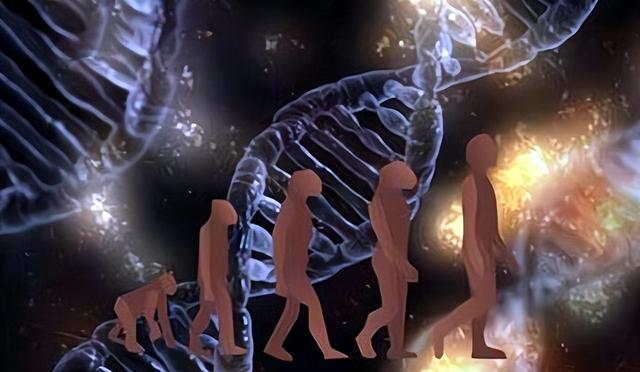As the previous generation of the earth's overlords, dinosaurs ruled the earth for 160 million years, compared to the few million years when humans appeared on the earth, which can be said to be very short, but in this short few million years, humans quickly became the new generation of the earth's overlords, and its degree of domination of the earth is far more than the dinosaurs.

One of the major reasons why humans have been so successful is that they possess higher intelligence, so the question naturally arises as to why humans could possess higher intelligence within a few million years, while the dinosaurs, who ruled the earth for 160 million years, did not evolve into higher intelligent creatures.
The first thing to say is that it is unfair to make a direct comparison between humans and dinosaurs because dinosaurs refer to all species in the phylum chordata, the order ornithischia and the order lizardia, of which there are thousands of known species as far as we can tell.
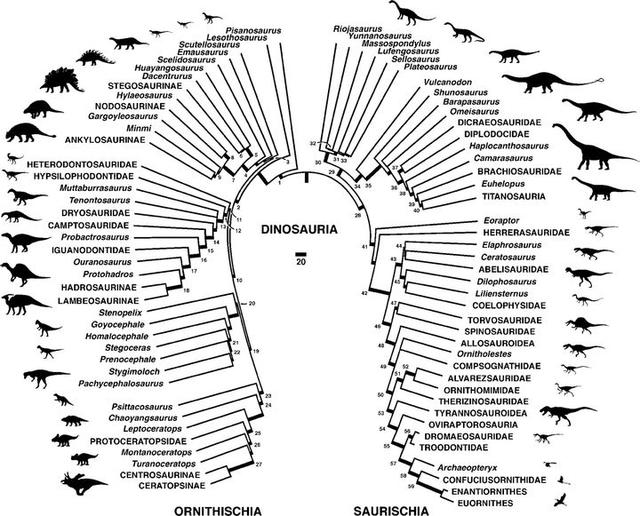
In contrast, humans are only one of many species in the primate order under the phylum chordata, mammalia, so it is only fair to compare the whole primate order with dinosaurs.

According to modern evolutionary theory, organisms undergo genetic mutations during the process of reproduction from generation to generation, and as a result, subtle differences are created, after which the natural environment selects for them, during which mutations that are suitable for the environment are retained, while those that are not are eliminated.
In simple terms, the direction of evolution is to survive better and reproduce more successfully, and because evolution is a subtle and gradual process, if a small improvement in a trait gives an organism a clear advantage, then that trait can be enhanced over the course of evolution.
Early primates were overwhelmingly tree-dwelling herd animals. The environment in trees was more complex than on solid ground, and without the support of the ground, they needed more flexible limbs to grip branches and trunks, and they needed better stereoscopic vision and spatial perception when moving around in trees.
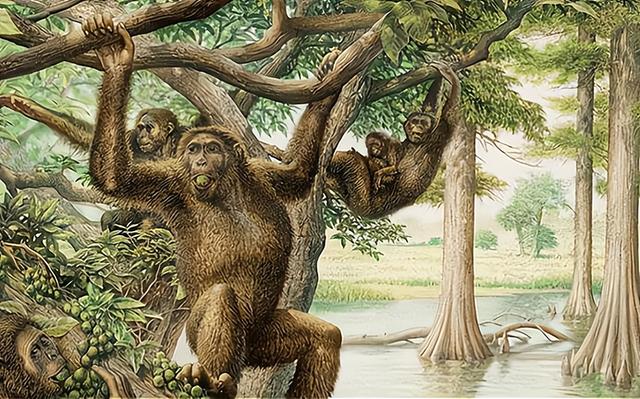
In order to find fruit and other food on the tree more quickly and accurately, they need to be able to distinguish colours and shapes, and they also need to be able to communicate with their own kind in order to adapt to group life.
These abilities can be enhanced by a larger brain and a more complex nervous system, which means that, all else being equal, a primate with a small improvement in this area will be able to survive and reproduce better.
This is why, along the long road of evolution, the brain capacity and the complexity of the nervous system of primates have been increasing, and consequently their intelligence has been increasing. This was an indispensable basis for the evolution of higher intelligence.
As a result of changes in the natural environment, our ancestors were forced into the unfamiliar savannah, which was even more complex than the trees. Without sharp teeth and claws and a strong body, our ancestors had to use tools and work in teams to survive in the savannah, where intelligence became more important.
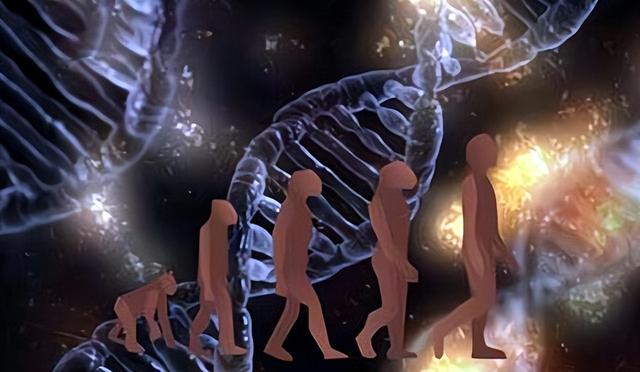
Thus, during the evolutionary process of human ancestors, their intelligence increased (in the form of larger and larger brains and more complex nervous systems) and they eventually evolved into higher intelligent beings.
During the 160 million years that dinosaurs ruled the earth, the plants on the planet were mainly gymnosperms, which did not produce fruit that could be used as food, so even if some dinosaurs could climb trees, they could not live in them for as long as primates.
Of course, dinosaurs did not need to go to the trees to find food either, because for the vast majority of the dinosaur era, the earth's climate was warm and humid, which allowed plants to grow in abundance on the surface of the planet, and it can be said that the landscape was vibrant everywhere.
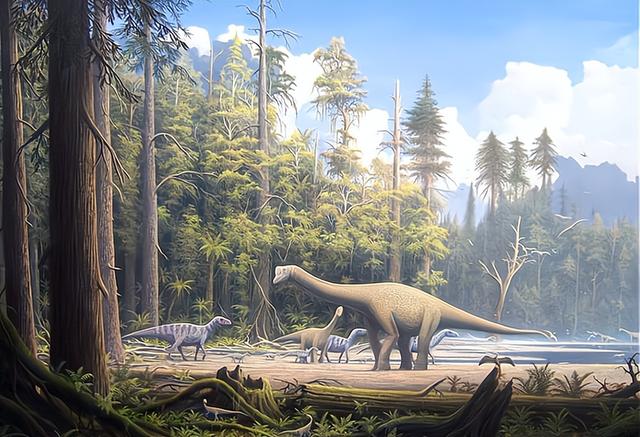
In such a natural environment, herbivorous dinosaurs had easy access to food, and for them, intelligence was not very important, as long as it was sufficient.
On the other hand, as the herbivorous dinosaurs got bigger and bigger, the carnivorous dinosaurs had to evolve to be bigger and bigger, and as for intelligence, they only needed to be a little bit bigger than the herbivorous dinosaurs.
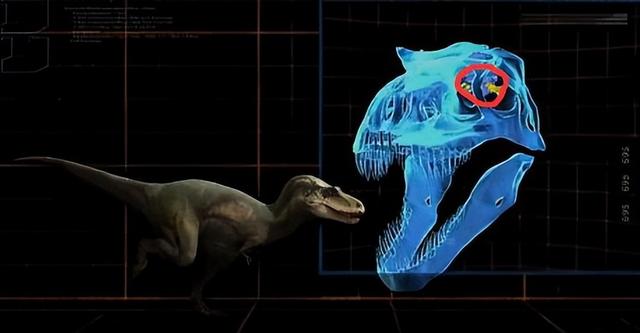
(the picture shows the tyrannosauridae albertaurus and the size of its brain in the cranial cavity)
In this case, "A little bit bigger" Became the main theme throughout the dinosaur era, although of course there were some small dinosaurs, but for them, intelligence was not particularly important, and instead of "A little bit more intelligence", it was better to be "A little bit faster". Some of them even flew into the sky and became the ancestors of birds.
The higher intelligence of humans did not come out of nowhere, it was a matter of "Quantitative to qualitative change". In contrast, the natural environment of the dinosaurs did not provide the impetus for them to evolve into higher intelligent beings.


